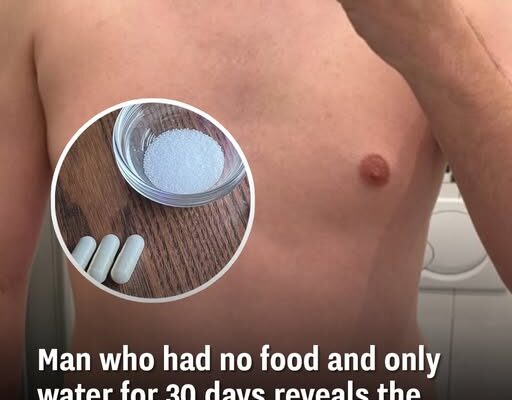Content warning: This article contains topics some readers may find distressing
A man who decided to have no food and only water for a month has detailed the impact it had on his body.
Of course, it’s certainly not healthy to have no food for such long period of time, so such a challenge is advised against by healthcare professionals.
While factors such as sex, age, starting weight, and water intake all playing a role, experts have discovered someone who is starving themselves could die in 43 to 70 days.
Twitter user @maru.eth decided to drink only water for a period of 42 days, but ultimately called it quits on Thursday (January 23) after 30 days.
Taking to Twitter on December 26, at the start of the challenge, he said: “Updating this thread with my 1000-hour (42 days) water fast progress that I started after Christmas dinner. I’ll only drink water and supplement electrolytes (sodium, magnesium, potassium).”
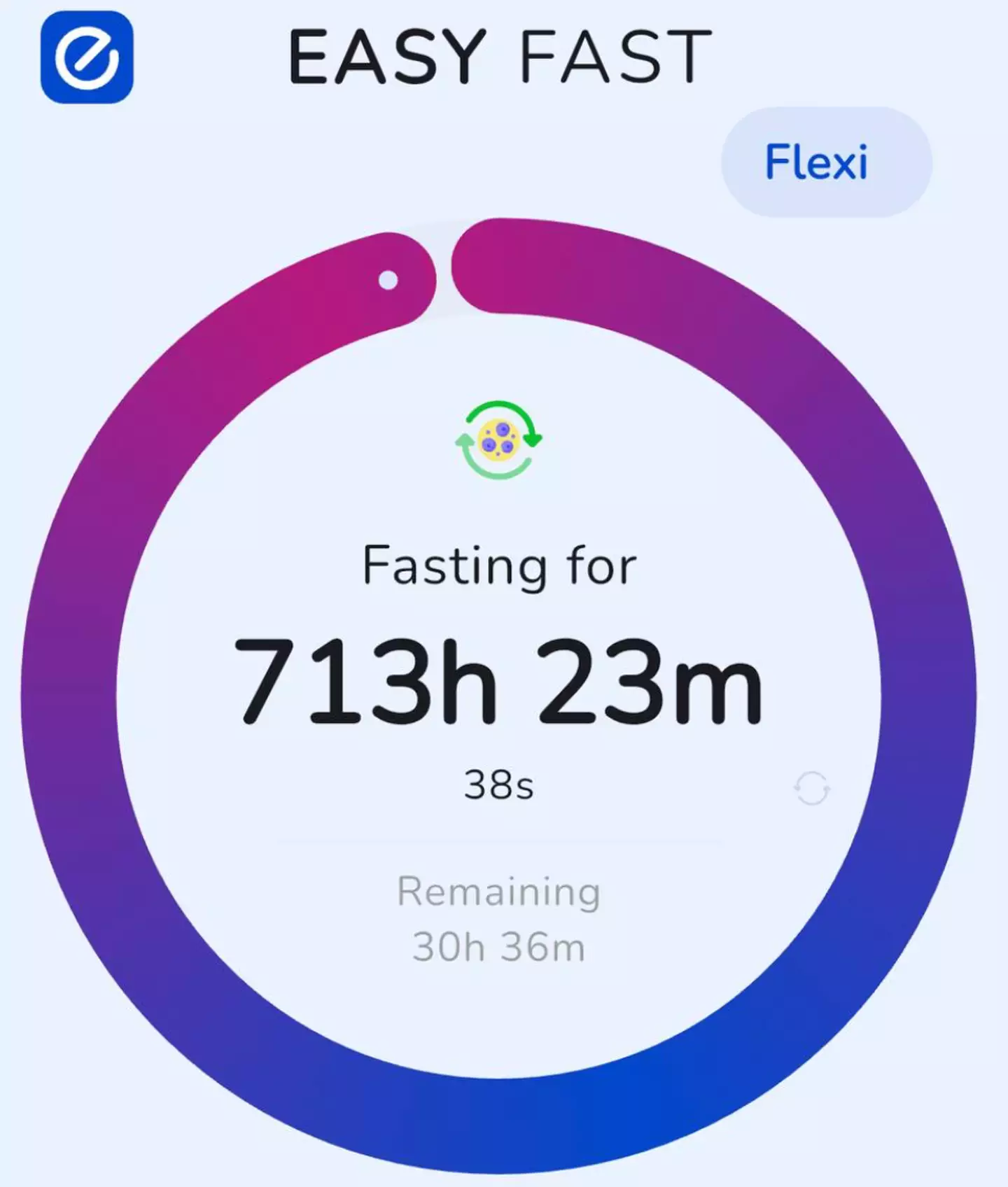
He had no food and just water (Twitter/@wasserpest)
The man explained how his weight on December 24 was 97.85kg (216lbs), while he was six-foot-four tall.
On Twitter for the past month, he has been posting regular updates about his progress, beginning by explaining how the first 72 hours were the ‘toughest’.
“The first 72h are the toughest because your body is constantly signaling you to eat. it gets way easier after that initial period,” he wrote.
After his first week, the man had dropped 92kg, which coincided with the New Year’s celebrations.
“Spending NYE without any yummy snacks or drinks was tough, but I made it, I’m alive. slept pretty well and feeling good overall, but I can’t shake off the feeling that this fast feels considerably different than my other ones… somethings up and I’m not exactly sure what,” he explained.
Throughout his test, @maru.eth explained how sleep was never really a problem, but the mornings were usually ‘rough’.
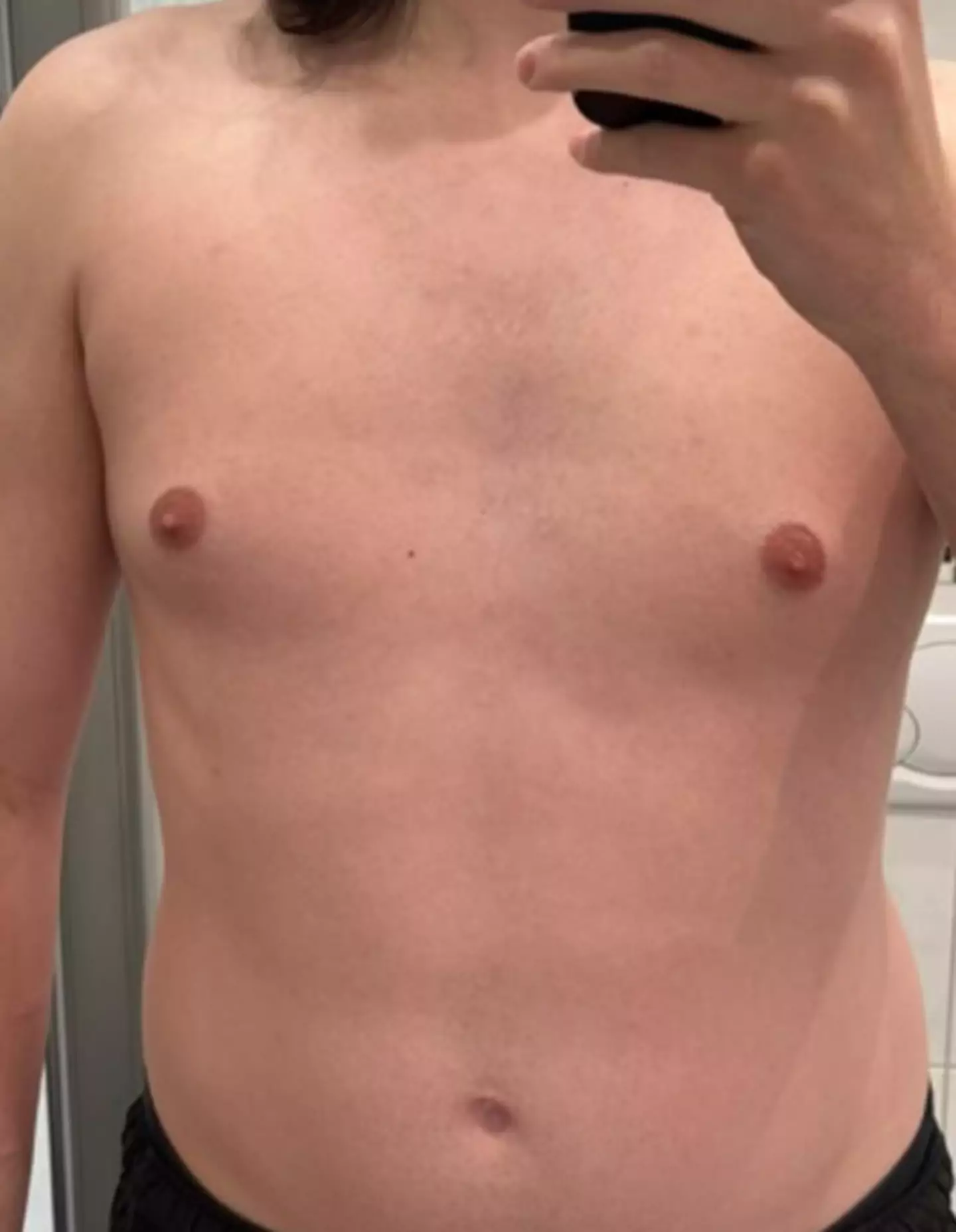
The man has detailed his body transformation (notmaru/Instagram)
“I lose approximately 300g each day if I keep my sodium intake constant. I still lost actual fat but you don’t see that on the scale because of increased water retention,” he explained in a follow-up post.
One question many will be asking is how going for a number two is impacted by having zero food for such a long time.
The man explained how his stool was ‘very long and that there’s residue coming out even after 13 days of not eating anything’.
On January 17, he said how he had gone for his first poo in a whopping 12 days.
And after a gruesome month, he ended the fast this week with a weight of 82.95kg, a drop of 15kg.
“I’m finally done. 30 days without food, just water,” he said. “I didn’t quite reach the 1000 hour mark as I initially planned but I’m still proud I kept at it for so long. I did this to challenge myself and for no other reason! never fasting for so long ever again.”
If you’ve been affected by any of the issues in this article and would like to speak with someone in confidence, call the BEAT Eating Disorders helpline on 0808 801 0677. Helplines are open 365 days a year from 9am–8pm during the week, and 4pm–8pm on weekends and bank holidays. Alternatively, you can try the one-to-one webchat
0 comments
Featured Image Credit: notmaru/Instagram
Topics: Food and Drink, Health, Mental Health

For many, January is all about being better, doing more than you did last year, and picking up new habits like swapping alcohol out for good old H2O.
If you’re currently on a journey to better health and wondering where to start, maybe taking a leaf out of YouTuber Scott Luu’s book will help.
In 2020, the creator wanted to discover whether drinking more water over a prolonged period of time could change his productivity and performance levels.
His idea was to triple his regular water intake for 30 days and document how he found the process in a YouTube video.
As someone who didn’t drink a whole lot of liquid beforehand, it’s understandable that the first major effect Luu felt after drinking three liters a day was the need to go to the toilet.
The creator said that he experienced a ‘huge, huge, huge increase in peeing’ during the experiment, claiming instead of his usual six trips, he was going to the bathroom between 12 and 13 times a day.

The YouTuber decided to drink three liters of water every day for an experiment (YouTube/Dreamlet)
However, he stated a ‘more useful’ effect of drinking so much water in the early days of the challenge was that he no longer felt ‘foggy’ the morning after completing a late-night editing session.
“Now that I started this water challenge, I chug half a liter of water in the morning and it’s like drinking clarity,” he explained.
“I can feel an immediate difference in energy, and it’s a bit freaky.
However, Luu claimed he was: “99 percent sure that’s just my mind reacting to the stimulus of drinking a lot of water because my body can’t really access that energy.”
Moreover, Luu claimed he no longer needed to include naps in his daily routine.
“Before the experiment, I took one daily 20-minute nap in the afternoon. During the experiment, it turned into six [days] out of the 30. Energy levels: a definite increase.”
Intriguingly, the social media star noticed that as the challenge progressed, he stopped feeling an ‘immediate’ power surge when chugging H20.
This is probably because his body was adjusting to the sheer amount of liquid being poured into it.

Hundreds of people have commended the creator for documenting the challenge (YouTube/Dreamlet)
Rounding up his successful experiment, Luu mentioned that drinking water isn’t a ‘magical pill’ that can solve all your problems.
He stated: “If you don’t have your s**t together, the water would just give you more energy to keep on doing unproductive tasks.
“However, if you have intention and focus drinking more water will help boost clarity and energy, increase focus stamina, make you nap less, and cause you to pee a lot.”
Luu’s video has amassed 201,000 views since it was uploaded to YouTube in April 2020 and has collected hundreds of comments from admiring platform users.
One viewer typed: “This is so motivational and inspirational. Thank you so much for this! I am really grateful.”
“I remember i went a year replacing every drink with water (even at family gatherings, etc.) and I have to say that was my best year, my bloating went down a tiny bit and I didn’t feel groggy after a meal as when I used to drink soda almost non stop,” replied someone else.
A third said: “My blood sugars are under control after drinking 3+ litres of water everyday for 2 weeks. It makes me wonder whether diabetes is a symptom from a lack of water weight.”
Conversation2 Comments
Featured Image Credit: Scott Luu/YouTube
Topics: Health, YouTube, Food and Drink, Social Media
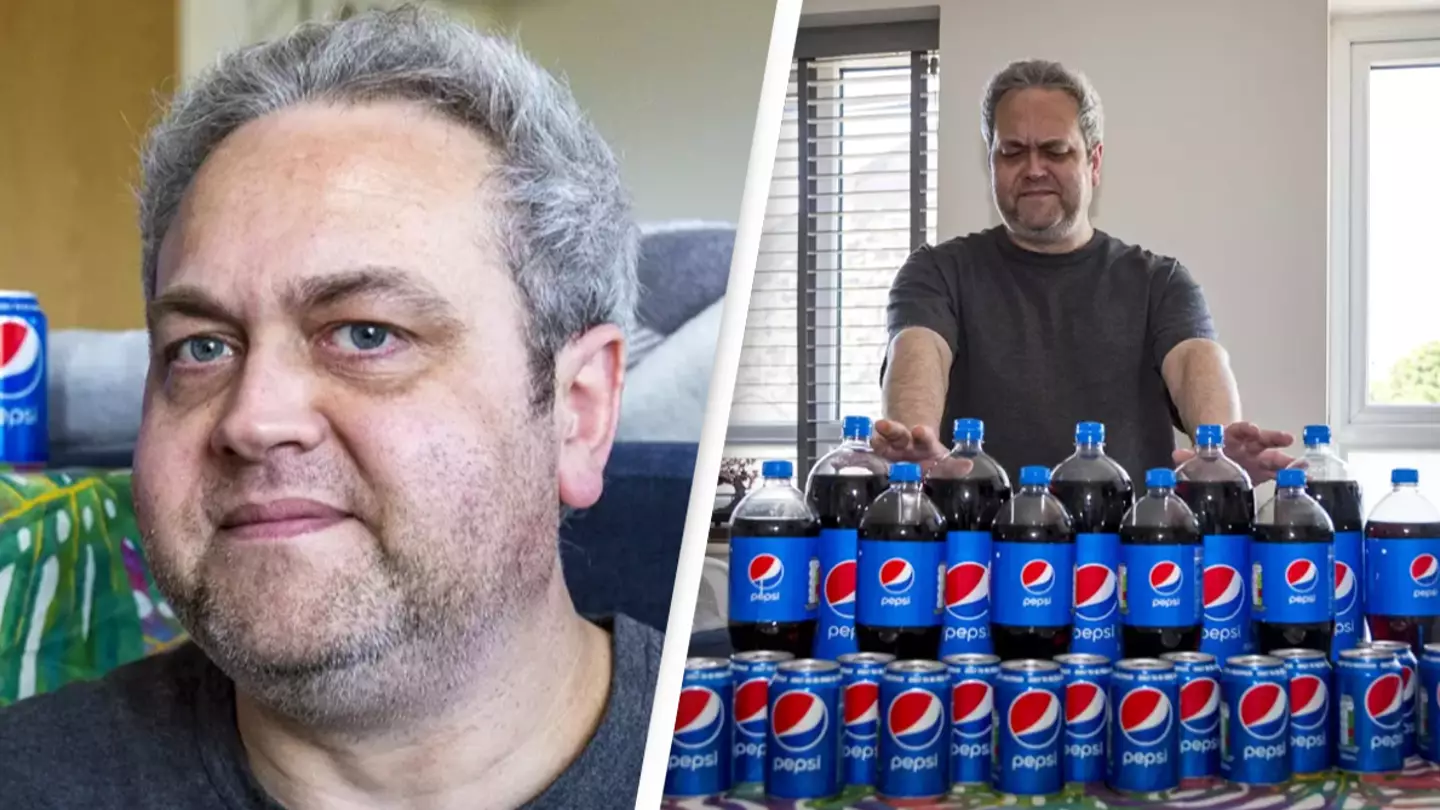
A man whose Pepsi addiction lead to him drinking a staggering 30 cans of the stuff a day has revealed the shocking effects it had on his body, as well as his bank account.
Andy Currie would start every day with a litre of fizzy pop and would drink a further nine litres throughout the day.
“I’ve always loved the taste of a cold Pepsi. Nothing could beat it and I just got hooked,”Andy, from Bangor, Wales, confessed.
“I work nights so always liked the sugar rush to keep me going. I’d go through four or five two litre bottles of Pepsi every day.
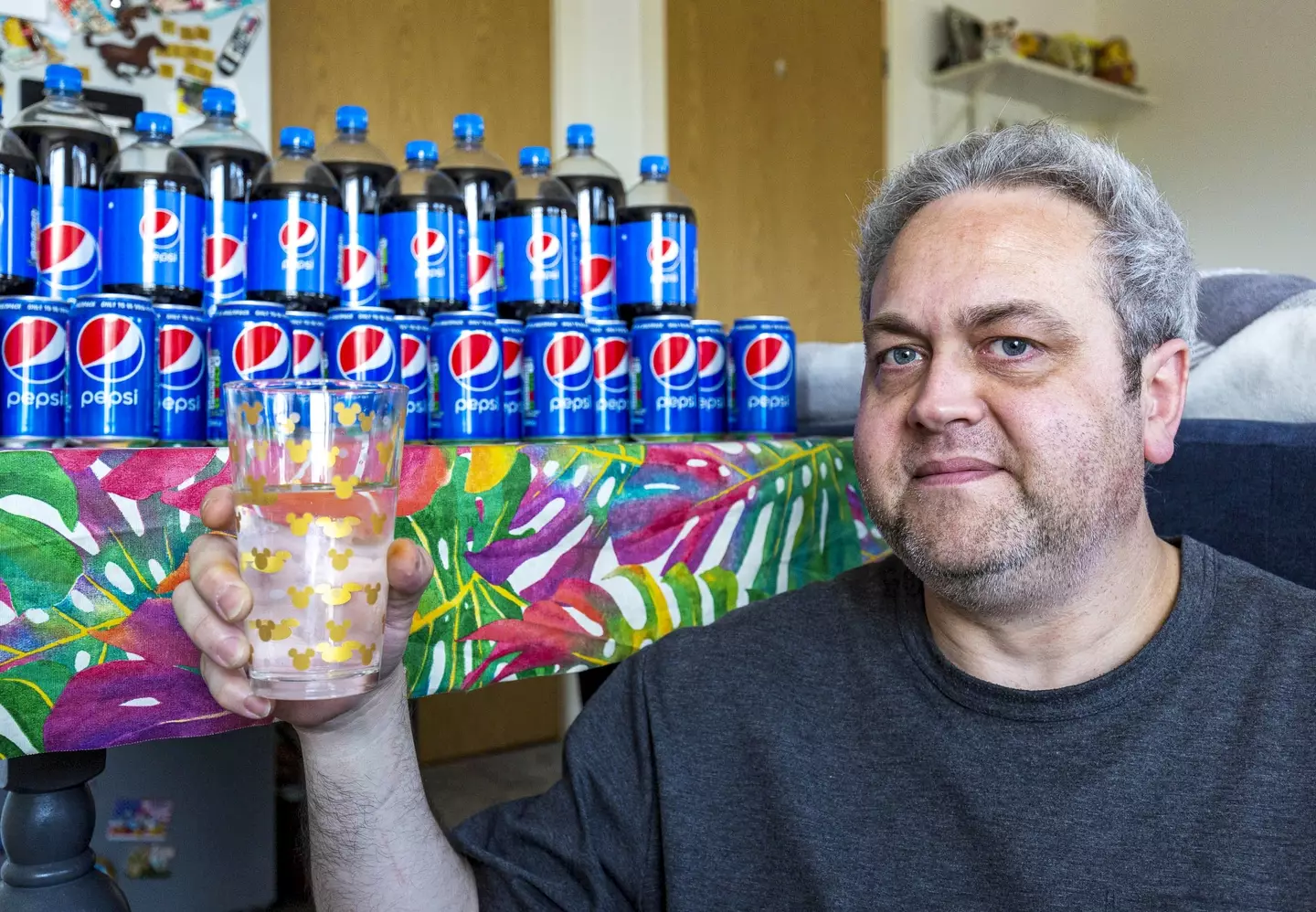
Andy loved a can of Pepsi (SWNS)
“Because I work at Tesco I could just buy it straight after work and take it home.”
‘It cost me a fortune’
Andy would spend a whopping $25 a day on Pepsi, which racked up to around $8,500 a year on his favourite drink.
“It cost me a fortune to be honest. I could have bought a car every year for the same amount I was spending on Pepsi,” he admitted.
“I just needed to have it, as soon as I woke up I’d go to the fridge and pour myself a large glass of Pepsi and just carry on through the day.
“I remember going to weddings and birthdays and while other people had glasses of champagne I’d be toasting people with a can of fizzy pop.”
Andy’s health began to deteriorate after his Pepsi consumption got out of control, and it got to the point where the Brit topped 19 stone and was at risk of developing diabetes.
While he managed to lose two stone through a strict diet, Andy was still struggling to quit drinking Pepsi for good.
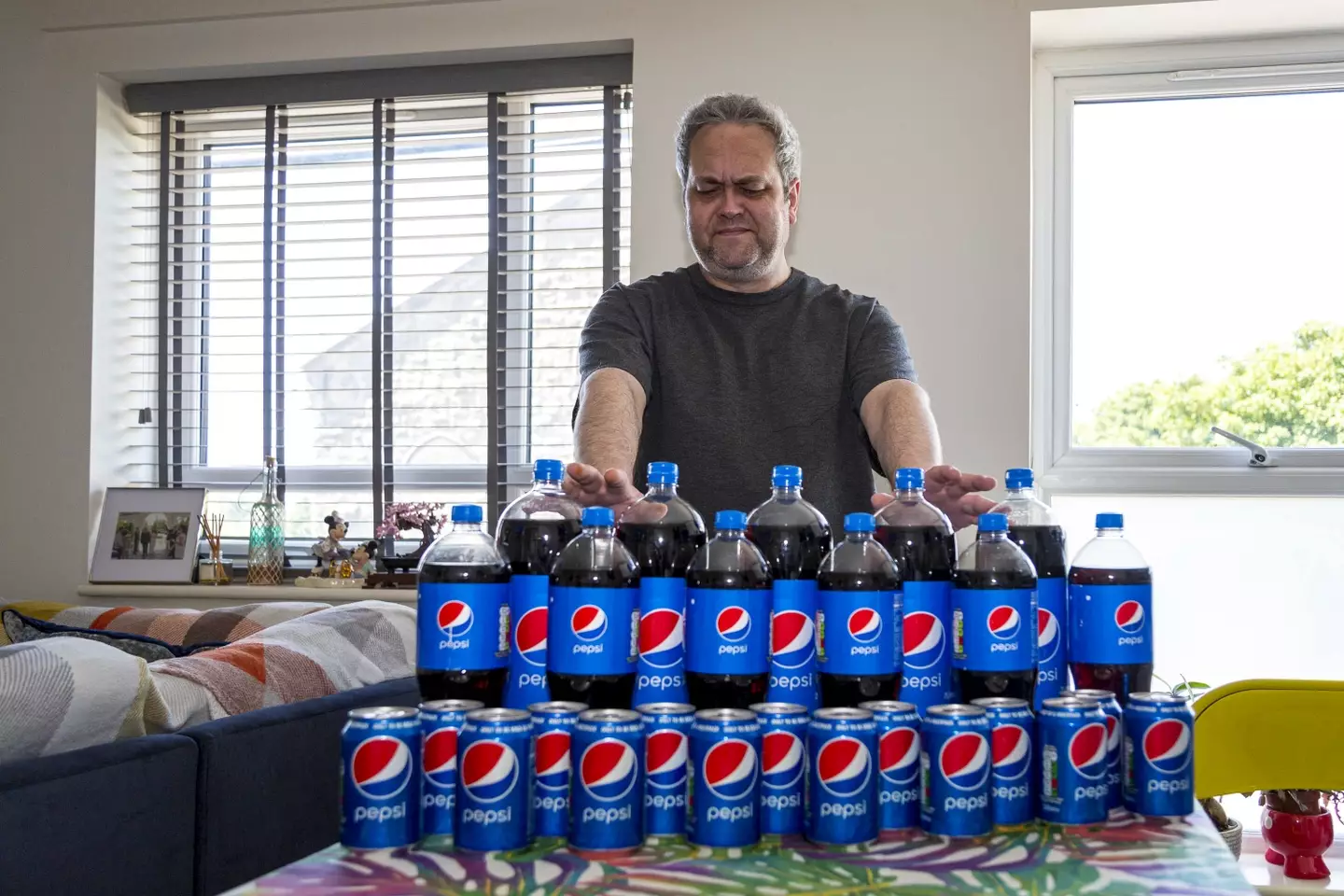
The coke lover sought help (SWNS)
‘It became a poison and a crutch to him’
It was London-based therapist and hypnotist David Kilmurry who Andy got in touch with as a result, and he saw results almost instantly.
“David met me online and hypnotised me for about 40 minutes,” Andy said.
He continued: “I don’t know what he said but afterwards I just didn’t want to drink it anymore.
“I’ve still got two cans of Pepsi in my fridge which I was going to have before the session but didn’t have time.
“I prefer water now. My wife Sarah says my skin looks better and I’ve got so much more energy.”
David said: “I was horrified at Andy’s disclosure of drinking 10 litres of Pepsi a day.
“That was by far the worst sugar addiction I’ve ever heard of.
“Resigned to addiction, Andy was overweight, anxious and struggled to get his words out because he was so breathless.
“It became a poison and a crutch to him. Since working with him I am delighted to see him drinking water and healthy drinks.”
Conversation1 Comment
Featured Image Credit: SWNS
Topics: Health, Food and Drink
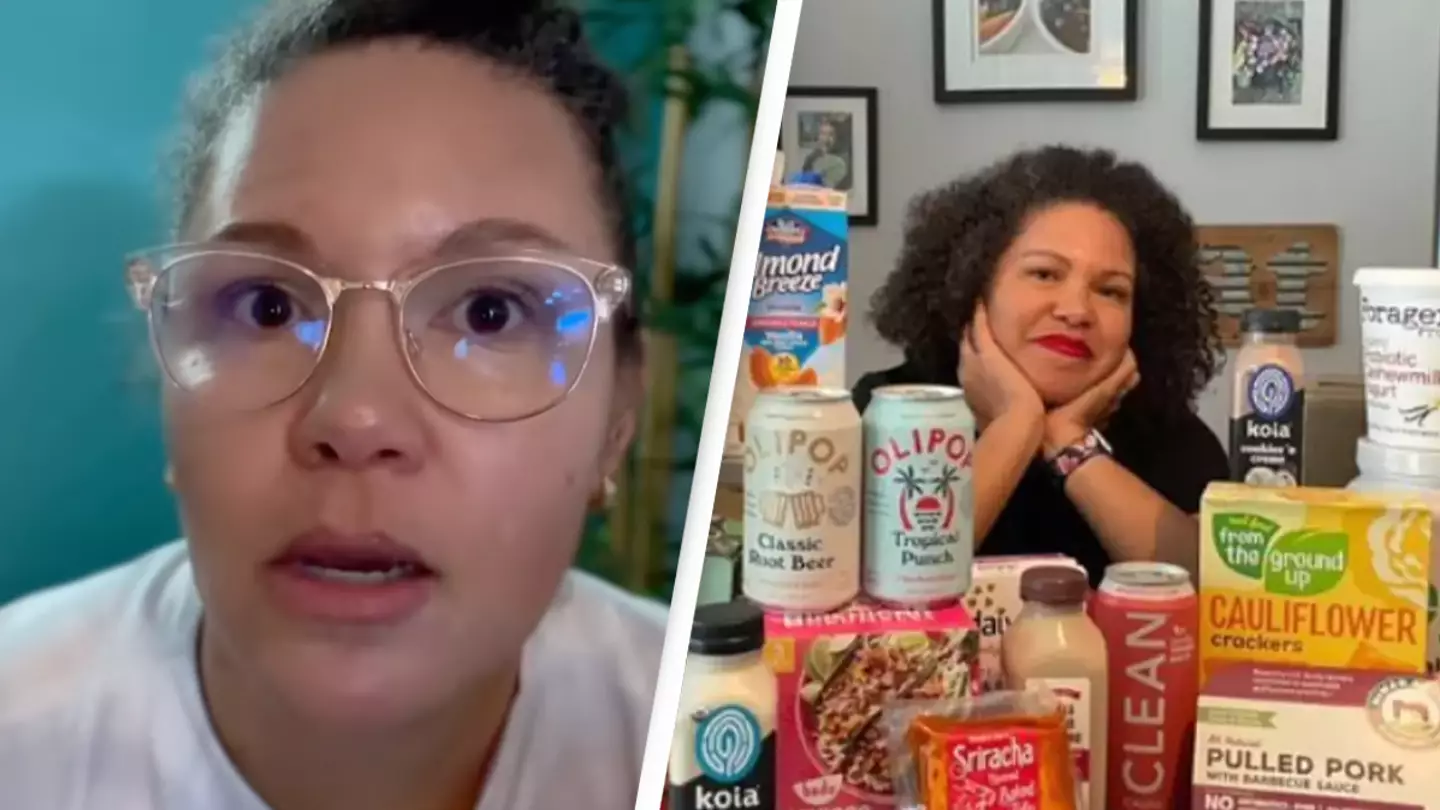
This article contains discussion of food habits and calorie counting that some may find distressing.
A dietitian has argued why ultra processed foods can be ‘part of a healthy diet’ after experiencing ‘surprising’ results from making them at least 80 percent of her diet for a month.
With ultra-processed foods often made out to be ‘something we’re supposed to avoid,’ dietitian Jessica Wilson decided to test out whether this ‘entire category of foods’ is really that bad for us.
What the dietician ate
The dietitian made at least 80 percent of her daily calorie intake ultra-processed for a whole month, eating soy chorizo instead of eggs as an example of an ultra-processed breakfast, TIME reports.
Instead of eating something like beans with avocado and hot sauce for lunch, Wilson grabbed a ready-to-eat tamales from Trader Joe’s.
Snacks consisted of cashew-nut yogurt with jam and dinners sometimes looked like chicken sausages with vegetables and Tater-Tots or Costco pupusas.
And after a whole month of at least 80 percent ultra-processed foods every single day, Wilson felt remarkably different – but not in the way you might think.

Dietician Jessica Wilson has weighed in on the discourse surrounding ultra-processed foods (Instagram/ @jessicawilson.msrd)
The results
In a post to Instagram, Wilson said she ‘surprisingly felt better’ after just ‘two weeks’ of the diet.
“At the end of my meal I have no idea what my hunger hormones were doing but it was great not to be hungry in an hour and to go longer periods without having to forage for food,” she said.
She added she thinks she wasn’t actually ‘eating enough’ food before embarking on her ultra-processed diet.
And despite multiple studies over recent years connecting a diet with more ultra-processed foods leading to a rise in anxiety and depression, Wilson told TIME she actually felt less anxious and had more energy – so much so, she didn’t feel the need to drink as much coffee.
And while she may’ve been bored of the ultra-processed foods she was eating by the fourth week, in an interview with Mail Online earlier this month she noted her wife noticed her ‘complaining less and doing more’. And while her weight didn’t change, she did see ‘an improvement in body composition’ with a more toned physique.
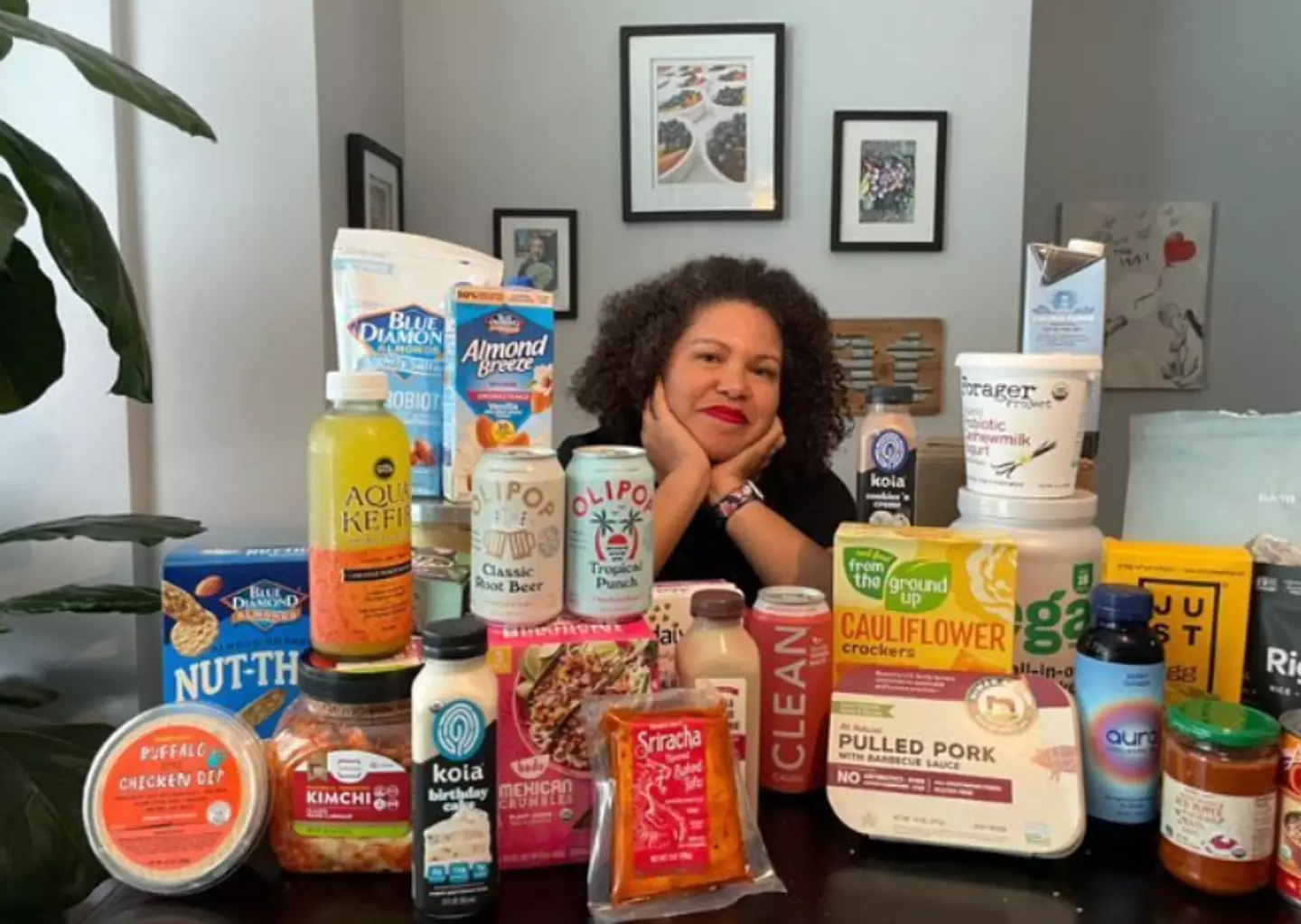
Wilson ensured her diet for the month was made up of 80 percent or higher ultra-processed foods (Instagram/ @jessicawilson.msrd)
The debate surrounding ultra-processed food
The dietitian reminds the definition for ‘ultra-processed food’ is still very conflicting, given there are ‘multiple definitions’ from many ‘different researchers and doctors’ – so how can anyone say the whole category of food is ‘bad’?
She argues: “If we look at the Nova classifications for foods, what is supposed to distinguish a category four: ultra-processed food from a category three: processed food it is not always clear.”
Wilson notes the term ‘additives’ – substances often added to processed foods for technical reasons such as helping them stay stored for longer – is often used as a ‘buzz word for what makes something unhealthy’.
However, one example of an additive is ‘egg lecithin’, which has some ‘beneficial properties’ and baby formula sometimes also contains additives too.
Wilson resolved: “There’s a lack of conclusive and comprehensive science and a lot of that comes from a lacking clear definition of an ultra-processed food.
“[…] UPFs can be part of a healthy diet and we need to be having a different conversation.”
0 comments
Featured Image Credit: Instagram/ @jessicawilson.msrd
Topics: Food and Drink, Health, Science, Psychology
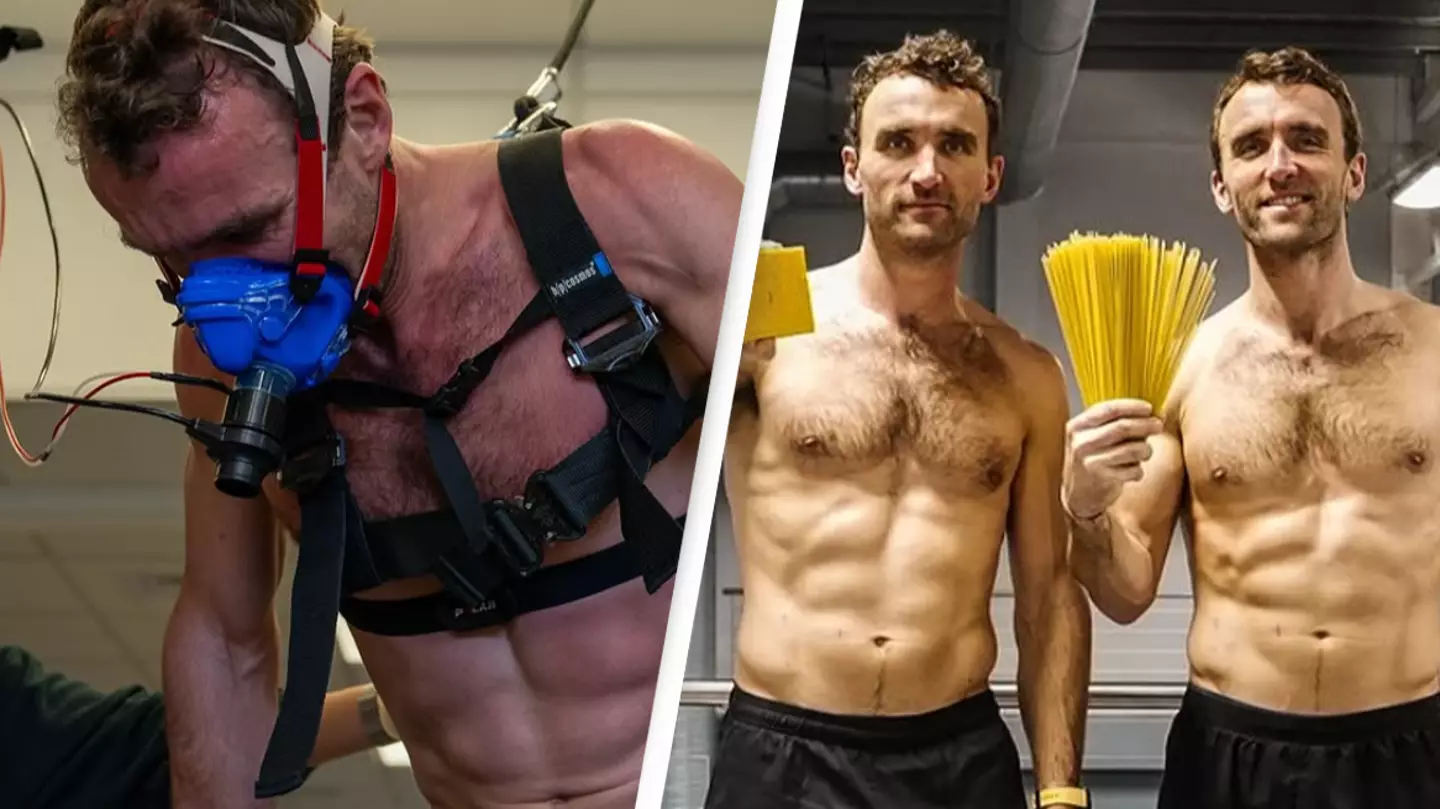
A pair of identical twins who went on a separate carb and fat diets have revealed the surprising impacts they had on their body.
Hugo and Ross Turner went on separate fat and carb diets in a study in partnership with Loughborough University in the UK.
The 12 week programme saw Ross take on a strict carbohydrates diet, while twin Hugo took on the fat meal plan.
While they were taking on different diets, there were a lot of similarities between what the identical twins were consuming.
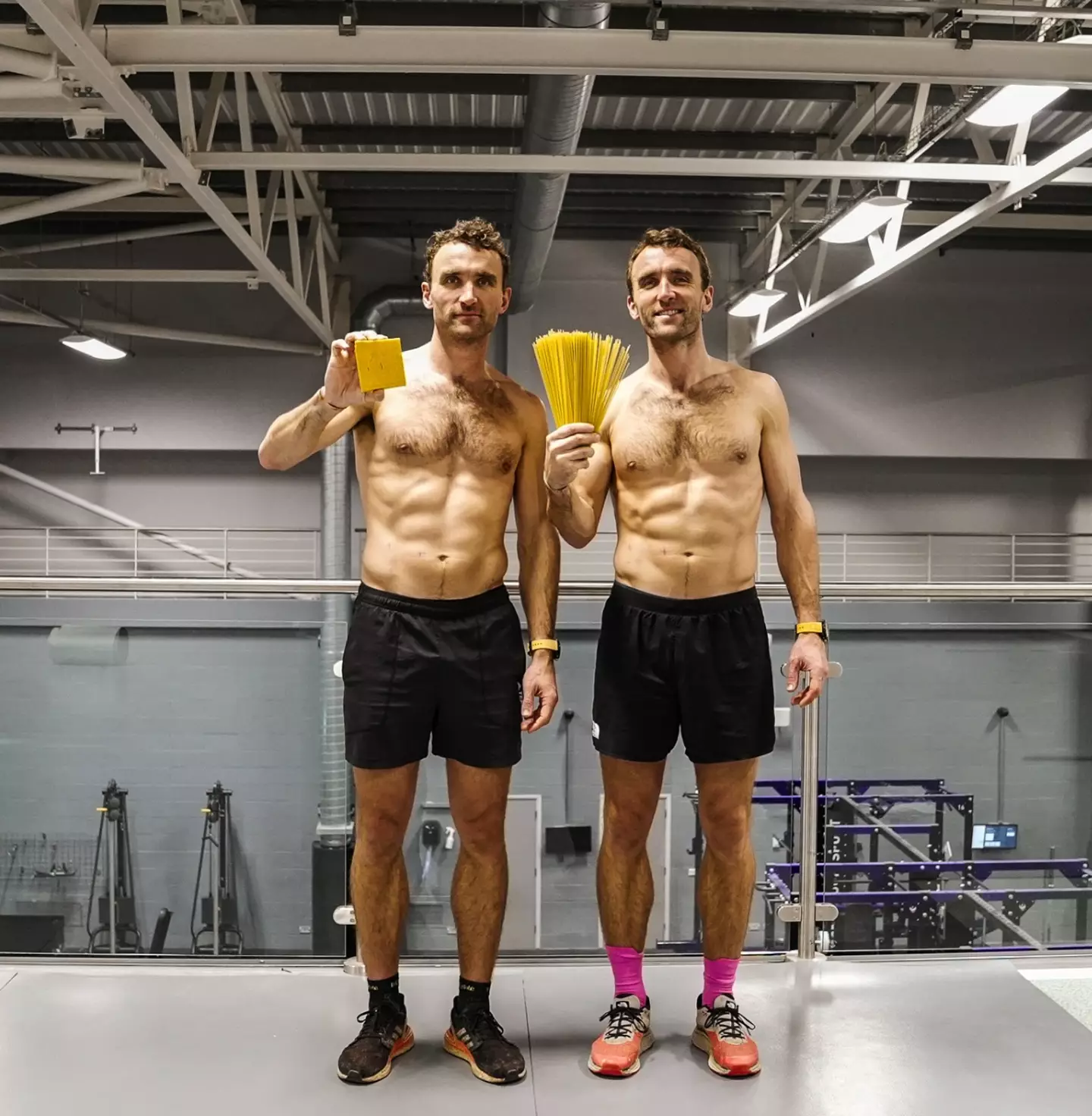
The identical twins took on separate diets (Instagram/@theturnertwiins)
They both ate around 3,500 calories every single day, supplied in part by Frive – a ‘delivery service that provides healthy, chef-prepared meals’.
On top of this, the pair had 350 calories of protein shakes and other snacks, which ultimately saw them hit the 3,500 calorie mark.
There was only a 500 calorie difference between the twins’ allowance, with Hugo eating 500 calories from fat and Ross getting his final calories on the board through carbs.
Results published on Wednesday (January 22) found Hugo’s strength had increased by 59 percent thanks to the fat diet, while Ross’ increased by 56 percent.
As you’d probably expect, Hugo’s body mass increased by 2.7kg, versus the 0.2kg seen with Ross’ carb diet.
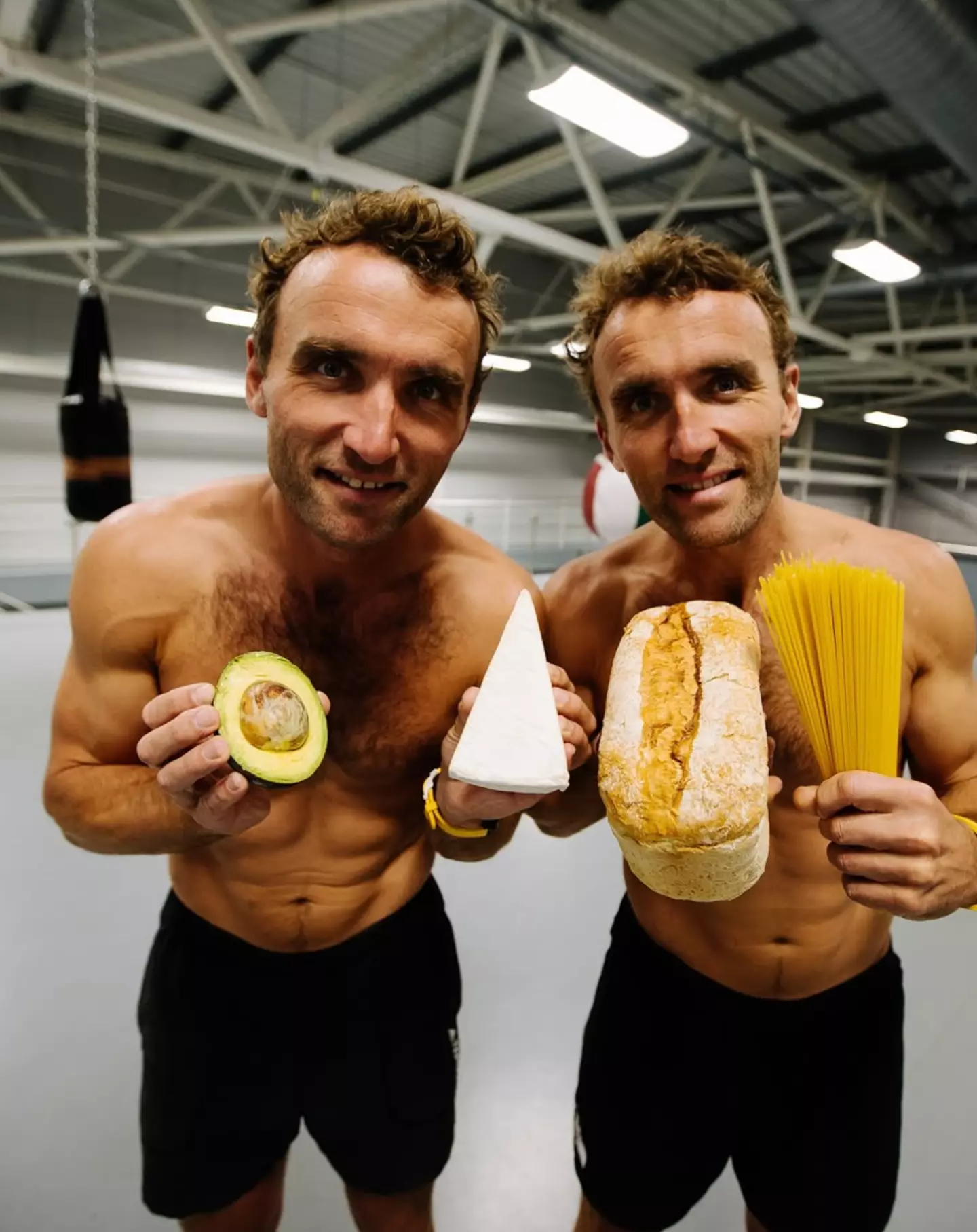
The twins saw differing results (Instagram/@theturnertwiins)
“In summary, both diets across the 12 week training case study saw physiological improvements in metabolic, cardiac and efficiency markers although VO2max wasn’t improved,” the study’s authors said.
In conclusive thoughts, they added: “A higher carb diet is more beneficial for higher intensity running, lifting and exercise (CrossFit, 10k, half marathon etc.), whereas the higher fat diet is better for lower intensity but longer forms of exercise (walking, hiking, jogging). This backs up the general hypothesis for a higher carbohydrate diet and a higher fat diet.”
To the twins’ surprise, the skin fold test conducted for the experiment saw a drop in both Hugo and Ross’ body fat, but with the use of Bodystat machine, an increase in Hugo’s body fat was recorded.
Previously, Hugo and Ross had gone on separate vegan and meat diets over the course of 12 weeks, and the results were certainly interesting.
Hugo revealed he felt more energetic during the day while Ross said his gym performances were ‘up and down a little bit more’ due to his meat-eating diet.
On the heath side of things, Hugo discovered that the diversity of his gut bacteria had dropped ‘severely’, while his brother’s stayed the same – meaning Ross was less likely to pick up illnesses.
